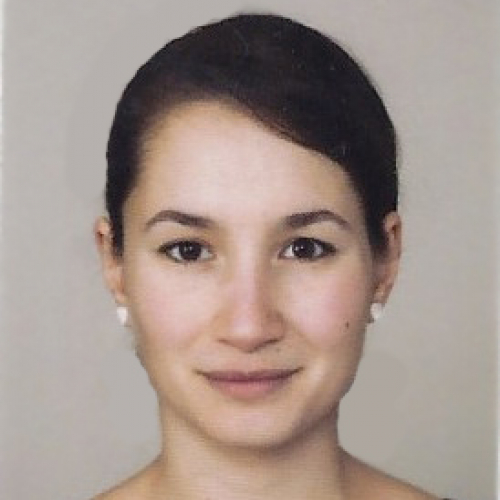
Dr Hannah Laurens
After a youth spent immersed in music playing violin (junior music college in the Netherlands, BA and MA at the Guildhall School of Music & Drama in London), I switched to philosophy. I was captured by its puzzles, its grand questions, and I love the precision the discipline demands.
My research is in the History of Philosophy, in particular in Ancient Greek and Early Modern Philosophy. My PhD (University of St Andrews) examined Aristotle’s views on the place of the intellect (nous) in nature, and a recent postdoctoral project (Descartes Centre, Utrecht University) explored the notion of acquiescentia in Spinoza’s Tractatus Theologico-Politicus. Currently, I am a Departmental Lecturer in Ancient Philosophy in association with Somerville College, as well as College Lecturer at Pembroke College. I am also Editorial Assistant to the Editors of Philosophy, the flagship journal of the Royal Institute of Philosophy.
Postdoctoral Fellow, University of St Andrews
Postdoctoral Fellow, British Society for the History of Philosophy
Visitor, History of Philosophy Forum, University of Notre Dame
Junior Fellow, Descartes Centre, Utrecht University
Lisa Jardine History of Science Award, Royal Society
PhD University of St Andrews (no corrections)
BPhil University of Oxford
MA in Political, Legal, and Economic Philosophy, University of Bern (distinction)
BA in Philosophy, Birkbeck College, University of London (Cyril Joad Award)
Article
‘The Salvation of the Non-Philosopher: “Acquiescentia” in Spinoza’s Tractatus Theologico-Politicus’, Oxford Studies in Early Modern Philosophy, Volume 12 (forthcoming).
‘Nous and Divinity in Aristotle’s Metaphysics Lambda’, Phronesis (forthcoming).
Book
Reason: Fountain of Happiness for All. An Introduction to the Philosophy of Adriaan Koerbagh (1633-1669) (Uitgeverij Vantilt, 2019). In Dutch.
Book Chapter
‘Spinoza on Sin: Double Standards in the Tractatus Politicus?’, in Piet Steenbakkers et al. (eds.), Justice and Peace in Spinoza's Tractatus Politicus, (forthcoming). In Dutch.
Prize
Graduate Essay Prize of the British Society for the History of Philosophy, 2018, for a paper on Aristotle’s Posterior Analytics II.19.
Dr Hannah Laurens

After a youth spent immersed in music playing violin (junior music college in the Netherlands, BA and MA at the Guildhall School of Music & Drama in London), I switched to philosophy. I was captured by its puzzles, its grand questions, and I love the precision the discipline demands.
My research is in the History of Philosophy, in particular in Ancient Greek and Early Modern Philosophy. My PhD (University of St Andrews) examined Aristotle’s views on the place of the intellect (nous) in nature, and a recent postdoctoral project (Descartes Centre, Utrecht University) explored the notion of acquiescentia in Spinoza’s Tractatus Theologico-Politicus. Currently, I am a Departmental Lecturer in Ancient Philosophy in association with Somerville College, as well as College Lecturer at Pembroke College. I am also Editorial Assistant to the Editors of Philosophy, the flagship journal of the Royal Institute of Philosophy.
Postdoctoral Fellow, University of St Andrews
Postdoctoral Fellow, British Society for the History of Philosophy
Visitor, History of Philosophy Forum, University of Notre Dame
Junior Fellow, Descartes Centre, Utrecht University
Lisa Jardine History of Science Award, Royal Society
PhD University of St Andrews (no corrections)
BPhil University of Oxford
MA in Political, Legal, and Economic Philosophy, University of Bern (distinction)
BA in Philosophy, Birkbeck College, University of London (Cyril Joad Award)
Article
‘The Salvation of the Non-Philosopher: “Acquiescentia” in Spinoza’s Tractatus Theologico-Politicus’, Oxford Studies in Early Modern Philosophy, Volume 12 (forthcoming).
‘Nous and Divinity in Aristotle’s Metaphysics Lambda’, Phronesis (forthcoming).
Book
Reason: Fountain of Happiness for All. An Introduction to the Philosophy of Adriaan Koerbagh (1633-1669) (Uitgeverij Vantilt, 2019). In Dutch.
Book Chapter
‘Spinoza on Sin: Double Standards in the Tractatus Politicus?’, in Piet Steenbakkers et al. (eds.), Justice and Peace in Spinoza's Tractatus Politicus, (forthcoming). In Dutch.
Prize
Graduate Essay Prize of the British Society for the History of Philosophy, 2018, for a paper on Aristotle’s Posterior Analytics II.19.